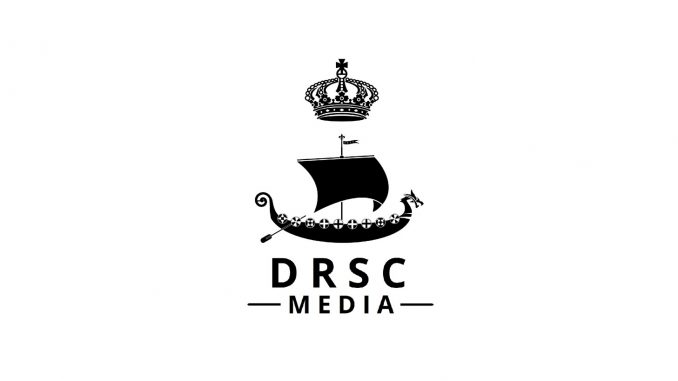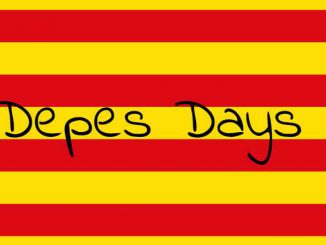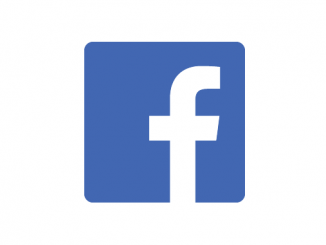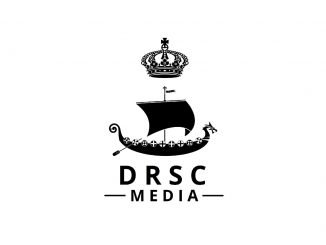
Employee behaviour online, and especially on social media, if negative, can, in some cases, damage the reputation of its employer, and quickly become a PR nightmare.
Artículo disponible en Español | Article disponible en Français
We have decided to write and publish this article before we receive inquiries about the recent behaviour of some of our employees on social media, who have been using our official accounts with quite a lot of freedom, engaging with other users in both positive and negative ways, although always promoting our content, company values and acting as one of our representatives.
First, it is important to explain that, at DRSC Media, employees have to follow very strict rules and guidelines, having very little freedom in some specific matters and with the company culture being very rigid. For instance, we disapprove changing the logo or the logo colours to match or celebrate a specific event, unless this one is of core importance to the company. For example, in recent times, many companies like to change their logos during Pride Month, colouring their logos with the LGBT colours, or celebrating various other days that might be important to customers, such as the 4th of May, which is usually “May the force be with you”, a reference to the popular movie series Star Wars.
However, while the goal of these “public” support demonstrations is understandable, most of these companies do not care about these events and causes, and only do so to try and gain customer loyalty from some of their customers, or, potentially, attract new customers which might strongly identify with these events, or for whom these events are relatively important. In other words, we believe the logo of a company should never be touched, unless celebrating events that might be of national importance, such as, for example, the centenary of the end of the First World War, or a designated national day of mourning.
If we now move on to how employees should behave outside of their work hours, we believe employees should either avoid mentioning their employer, unless their employer requires them to do so, for example, for political positions, or minimize their “problematic” interactions on social media, such as avoiding visiting, sharing or interacting with questionable websites, or remain as polite as possible when posting public comments, in the eventuality that these comments could be traced back to a real person and have repercussions on their employment or their employer. However, each company might have their own policies, and employees retain some degree of freedom, especially outside of work hours. In our case, we would rather minimize negative interactions with other users, and avoid promoting “problematic” content in general.
For official social media accounts, we believe these should only be used to share company information with other users, or reply to their inquiries, as if they were customers (unless they are actual customers, although, in our case, our customers have a company representative they can contact at any time, meaning most people we interact with online are unrelated to us). However, companies are also free to adopt a more relaxed attitude, interacting with users in a friendlier, more personal way, rather than only publishing serious messages and avoiding any unnecessary interactions. This latter strategy has been adopted by dozens of major brands, such as fast food companies, which are not scared of going as far as joking with users to earn a follow and a potential new customer.
If we now look at DRSC Media, we’ve concluded social media channels are useless to us, with these representing little to no traffic to our website. It is due to this that, at the end of 2019, we decided to gradually reduce our social media presence, with first the closure of our LinkedIn page, followed more recently by the closure of our Instagram and Facebook pages. We’ve also deleted some of our secondary Twitter accounts, with us having abandoned most of these pages at the end of 2019.
While social media channels remain important, the reality is very different from what users might expect, with tech giants limiting as much as possible the reach of the content of smaller pages, with the only way to please the algorithms being either paying advertisements with said companies, or being associated or receiving a shout-out from other, larger accounts. Of course, many companies now also choose to buy fake followers on their social media accounts, as the bigger the number, the better they will look on the eyes of consumers and other users. Ironically, this argument is often used on social media websites such as Twitter, with some users automatically ignoring any comments or criticisms if the account has less followers than they do. For these people, it appears everything stops at the size of the account, as if they were in some kind of dick measuring contest. Others will instead rely on the engagement rate, mocking others for not having any engagement on their content, while their own accounts look deader than the Dead Sea… and, ironically, this one actually has some limited life in it, contrary to what its name claims.
If we now look at DRSC Media and our employees’ use of official social media channels, some of the comments posted might be questionable and definitely fall outside of what we would have tolerated in the past. However, after concluding that these channels represent little to no traffic to our website, with us actually doing better now than when we used social media channels to promote our content, we’ve decided to let our employees do whatever they want with them… with some limitations, of course. One of the reasons we are able to do this is thanks to the anonymity of our customers, who do not want to be publicly named, and the fact that we are finally fully funded for the long-term, regardless of what might happen around us. With this, while we do not agree with the behaviour of our employees, we do not condemn it either, essentially turning a blind eye.
Ultimately for us, these interactions are actually positive for our brand, as more people become aware of our existence, even if for a brief moment, and our employees engaging with other users usually back their arguments with, ironically, articles published by DRSC Media, with this bringing us more visitors and increasing our yearly total. According to our estimations, each time somebody shares one of our articles in a conversation, we can expect 10 to 50 visitors in the following 24 hours, a non-negligible amount, especially when said articles might be a year or two old, with these interactions essentially giving these older articles a “second life”. Of course, having one of our articles shared by a larger account (with at least a few thousand followers) will bring more than 50 visitors, but we’ve yet to see this.
In situations such as ours, where we let our employees use our official social media channels freely, it is important we keep an eye on what they do and say, quickly correcting any mistakes and issuing apologies if need be. Due to this, we’ve been able to see some of the replies our employees receive on their comments. While most of the time, these replies are nothing out of the ordinary, in some cases, we end up shrugging our shoulders in disbelief, wondering if these people have even bothered reading the comments, explanations and articles shared by our staff. Of course, we are fully aware that, in the year 2020, the overall intelligence level of the population appears to have decreased by a few IQ points, with people unable to spare two minutes to read an article before posting their next comment, attempting to demolish any arguments with some of the most curious and lightest excuses we’ve seen in a while.
At the same time, it appears users are now very quick at accusing companies and groups they dislike of being funded by governmental organizations and bodies, with us having been accused, multiple times, of being funded by the European Commission, the Communist Party of China or even Huawei, to such an extent that, at this point, we are now seriously considering sending an e-mail to these various organizations and claim they owe us money. We can already predict the outcome, but this might be the only way to properly respond to these far-fetched claims… even if we are fully aware human stupidity knows no limit and that, once a stupid person is convinced of something, it is nearly impossible, or impossible, to convince them otherwise, with them digging not just a hole, but an entire trench, attempting to defend their wacky ideas at all cost.
Overall, while we believe companies must remain serious at all times and with all their public interactions, we also believe companies have the freedom to judge whether the attitude and behaviour of their staff outside of their working hours will have a serious effect on their business, with us having concluded that, regardless of what our staff says publicly, there is little to no risk that we will have to issue a public apology, or see our business suffer. Then again, this only applies to us and a few other companies unknown by the public, with bigger, large brands not enjoying these privileges, and having to be extremely careful while interacting with their customer base, with a single mistake potentially costing them millions, both in revenue and stock market valuation.


